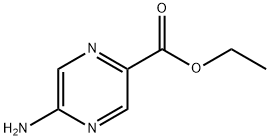Hydrochloric acid (HCl) is a strong acid commonly found in gastric acid, used in laboratories for various chemical reactions, and in industry for cleaning purposes.
Derivation Questions:
1.How does HCl dissociate in water?
2.Why is HCl considered a strong acid?
Is hcl an acid or base?
Related Products More >
-
- 108-80-5
- USD 50.0000
- 50kg
-
- 108-78-1
- USD 4.5000
- 25kg
-
- 4559-86-8
- USD 750.0000
- 170kg
-
- 77182-82-2
- equest For Quotation
-
- 70131-50-9
- equest For Quotation



 沪ICP备2021018848号-5
沪ICP备2021018848号-5

HCl is considered a strong acid because it dissociates completely in aqueous solutions, meaning that nearly all HCl molecules break apart into H⁺ and Cl⁻ ions when dissolved in water. This is in contrast to weak acids, which only partially dissociate in solution, such as acetic acid (CH₃COOH).
Derivation Question 1:
How does HCl dissociate in water?
Answer:
When HCl dissolves in water, it dissociates completely to form hydrogen ions (H⁺) and chloride ions (Cl⁻). The dissociation can be represented by the following chemical equation:
HCl (aq) → H⁺ (aq) + Cl⁻ (aq)
This reaction is very straightforward for HCl because it is a strong acid, and there is little to no equilibrium between the molecules of HCl and the ions in the solution. The full dissociation of HCl in water contributes to its strong acidic properties and explains why it has a very low pH (usually around 1 or 2).
Derivation Question 2:
Why is HCl considered a strong acid?
Answer:
HCl is considered a strong acid because it completely dissociates in aqueous solutions. This means that nearly every molecule of HCl in solution breaks apart to form hydrogen ions (H⁺) and chloride ions (Cl⁻). Strong acids like HCl release a high concentration of H⁺ ions, which are responsible for their acidic behavior. In comparison, weak acids like acetic acid (CH₃COOH) only partially dissociate, meaning fewer H⁺ ions are released into solution.
For example, when HCl is added to water, it releases a large number of hydrogen ions that can easily participate in chemical reactions, making it useful in processes like cleaning metals and adjusting the pH of solutions in laboratories.
Considerations and Applications:
When using HCl in practical applications, safety precautions are essential. As a strong acid, HCl can cause severe burns upon contact with skin or eyes. In addition, the fumes can irritate the respiratory system. Proper ventilation, gloves, and safety goggles should be worn when handling HCl. In laboratory settings, HCl is often used for titrations, pH adjustments, and in the preparation of solutions, and it plays a critical role in reactions such as the production of hydrogen gas in a reaction with metals like zinc.
In industry, HCl is used for cleaning and pickling metals, removing rust, and in chemical syntheses, such as the production of PVC (polyvinyl chloride). In these applications, understanding the strong acidic nature of HCl allows users to control the reactions and avoid unwanted corrosion or degradation of materials.
It's important to note that, while HCl is a strong acid, its concentration in solution can be controlled to suit different applications. For example, concentrated HCl is more aggressive and dangerous, while diluted HCl solutions are often safer to handle and can be used for cleaning purposes.
According to the Arrhenius theory, an acid is a substance that, when dissolved in water, releases hydrogen ions (H⁺). When HCl is dissolved in water, it completely dissociates into H⁺ and chloride ions (Cl⁻), increasing the concentration of H⁺ ions in the solution. Based on the Bronsted-Lowry theory, an acid is a proton donor. HCl readily donates a proton to other substances. For example, in a reaction with water, it donates a proton to water to form hydronium ions (H₃O⁺). In terms of the Lewis theory, an acid is an electron pair acceptor. Although HCl is more commonly described in terms of the Arrhenius and Bronsted-Lowry definitions, it can also be considered an electron pair acceptor in some reactions. Overall, HCl is a strong acid, known for its corrosive properties and its ability to react with many bases and metals to form salts.